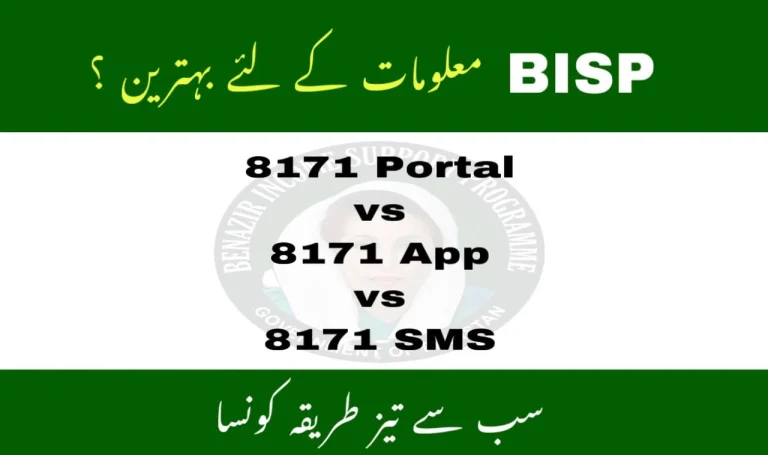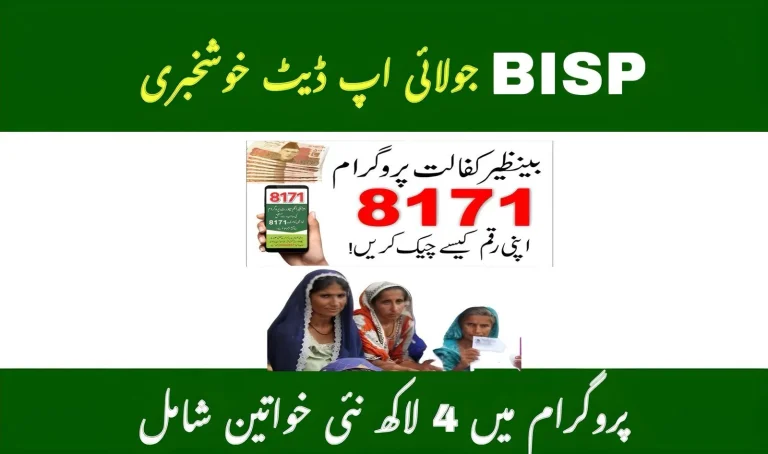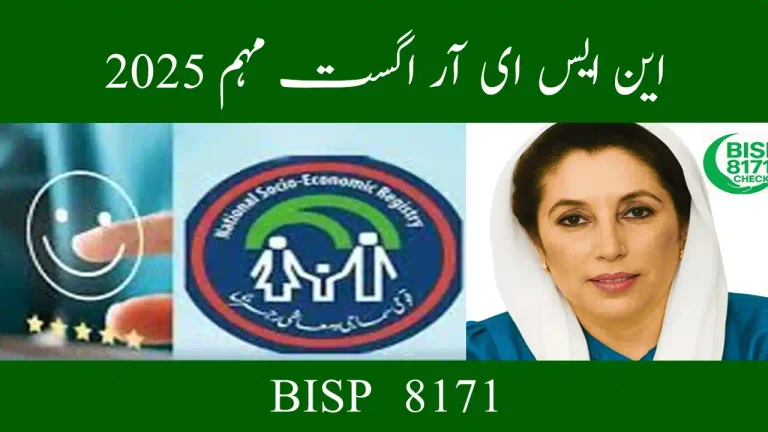Challenges Faced by BISP Beneficiaries in July Heatwave

Pakistan faced a severe heatwave this July, affecting millions across the country. While many stayed indoors to avoid the scorching sun, beneficiaries of the Benazir Income Support Programme (BISP) had to step outside to collect their monthly financial aid. Unfortunately, the combination of record-high temperatures and a new payment system made the process even more difficult for many families.
In this article, we explore the real struggles faced by BISP recipients during this challenging payment cycle and what can be done to make the process smoother, safer, and more accessible.
What Changed in July’s Payment Cycle?
In an effort to protect people from the heat and improve service delivery, BISP introduced a new payment model in July. Instead of gathering people at crowded camps, the government partnered with local retail outlets (like shops and small stores) to distribute payments.
This new system involved:
- Receiving money from registered retail shops instead of big camps.
- Using biometric verification (thumbprints) for payment confirmation.
- Providing printed receipts to increase transparency.
The idea was good, but many beneficiaries found themselves confused and unprepared. Let’s take a closer look at the problems they faced.
Key Challenges Faced by BISP Beneficiaries
1. Lack of Awareness and Misinformation
Many recipients didn’t know about the switch to retail-based payments. They arrived at the old campsites only to find them closed or empty. This caused confusion and delays, especially for those who traveled long distances.
Why it happened:
- Late or no communication from local offices.
- People missed SMS notifications or didn’t understand them.
- Not everyone had access to the internet or TV announcements.
2. Heatstroke Risks and Long Walks
Due to the extreme heat, many women and elderly people suffered from dizziness, dehydration, and even fainting while waiting for their turn or walking to the shops.
Common struggles included:
- Walking for hours under the blazing sun.
- Lack of shaded waiting areas.
- Standing in long queues with no water or rest areas.
3. Biometric System Failures
The biometric verification system was meant to improve security, but it often failed, especially in remote or hot areas. If the thumbprint scanner didn’t work, the beneficiary couldn’t get paid.
Why the system failed:
- Devices overheated or lost battery quickly.
- Internet connections were unstable.
- Fingerprint recognition errors due to sweaty or aged skin.
- Shopkeepers weren’t always trained to troubleshoot problems.
4. Power Cuts and Technical Delays
Many retail shops faced frequent power outages and poor network signals, which disrupted the payment process. People had to wait hours or come back another day.
This led to:
- Crowding and frustration.
- Heat exhaustion while waiting.
- Missed payments due to limited shop hours.
5. Poor Complaint Handling
Although a helpline was available, many people couldn’t reach it or didn’t know how to file a complaint. Others went to the tehsil offices, only to face long lines and slow service.
Common issues:
- Long call waiting times.
- Lack of follow-up or updates.
- No on-the-spot help for biometric or payment failures.
People Also Ask: Common Questions from Beneficiaries
Why did BISP change the payment method?
The change was made to reduce large gatherings and protect people from the extreme heat by using local shops instead of central camps.
What should I bring when collecting payment?
Original CNIC (Computerized National Identity Card)
Previous payment receipt (if available)
A bottle of water and a hat for sun protection
What if my fingerprint doesn’t work?
If your biometric scan fails:
Ask the shopkeeper to try again after cleaning the scanner.
Try using another finger.
If it still doesn’t work, visit the nearest BISP tehsil office or call the helpline.
Can someone else collect payment for me?
No. The payment is only given to the registered person after biometric verification. If you are sick or unable to go, visit the BISP office with proof and request support.
Helpful Tips for a Smooth Payment Process
Here are some simple ways to reduce stress and stay safe during future payment cycles:
- Go early in the morning to avoid the midday heat.
- Carry water and wear light clothes to stay cool.
- Check your payment location ahead of time.
- Keep your CNIC safe and ready.
- Keep your printed receipt for record and future reference.
- If anything goes wrong, call the BISP helpline immediately.
Solutions to Improve the System
To make the process better for everyone, BISP and local authorities can consider the following:
- Better Communication: Use loudspeakers, community volunteers, and local mosques to spread information quickly.
- Cool Waiting Areas: Provide shaded tents and water stations at busy retail outlets.
- Training for Retailers: Ensure all shopkeepers are trained in using devices and solving common issues.
- Backup Plans: Create an option for manual verification if biometric systems fail repeatedly.
- Mobile Payment Vans: In rural or high-risk heat areas, mobile vans could deliver payments directly to homes.
Why This Matters
BISP plays a crucial role in supporting low-income families, especially women and children. When payments are delayed or the process becomes stressful, it causes real harm—missed meals, unpaid bills, and loss of trust in the system.
By understanding the real problems and acting on them, we can build a more efficient, safe, and dignified process for millions who rely on this support.
Final Thoughts
July’s heatwave payment cycle was a tough lesson for both the government and the people. The new system has potential, but only if it’s managed well. Better planning, communication, and care can turn these struggles into success stories.
If you or someone you know is a BISP beneficiary, share this information and stay prepared for future payment rounds. Together, we can help each other stay safe and informed—even in the hottest of months.
Read this: Benazir Nashonuma Program 2025 – Support for Pregnant Women & Children in Pakistan
Read this: Digital Literacy for BISP Women in 2025 | Empowerment Guide
Disclaimer: This article is for informational purposes only. We are not affiliated with any government agency. For official updates, visit the official BISP website.
This content is based on publicly available information. We are not affiliated with BISP or any government body. Read full disclaimer here






